I went to the Warren Buffett annual meeting in 2003.
I had just started a hedge fund. I had read every book I could about Warren Buffett. And about one year later I even wrote a book (“Trade Like Warren Buffett”, 2005) about Warren Buffett that was different from all the others.
I was fascinated. He was my hero. But I knew the truth about him wasn’t so simple.
I was scared and jealous and shy at the annual meeting.
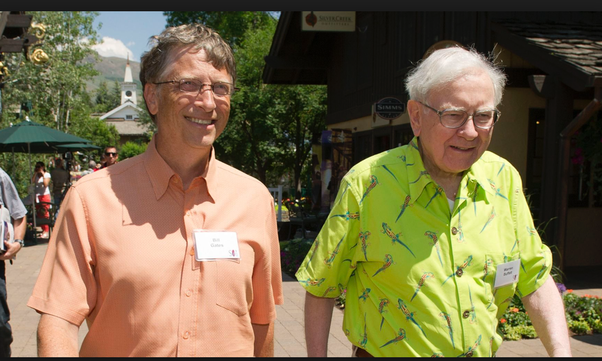
I got their at 5 in the morning and there was already a big line to get in. Thousands of people there. Krispy Kreme donuts were being handed out in the dark.
When the doors opened, everyone ran in to get a good seat. The floors had just been washed so everyone was slipping and falling.
The annual meeting was only 10 minutes. Then the rest of the day was made up of people asking Buffett and his partner, Charlie Munger, questions.
After the meeting I was taking a cab back to the hotel. The cab driver said, “Do you want to see Warren Buffett’s house?” I said, “Sure.”
We drove up to a regular house on the corner of a suburban block. There was a car parked out front with a man sitting inside of it. Security.
“This is it”, the cab driver said. Then he drove me back to my hotel.
I ordered room service, slept, and went home. I had been too shy to talk to a single person.
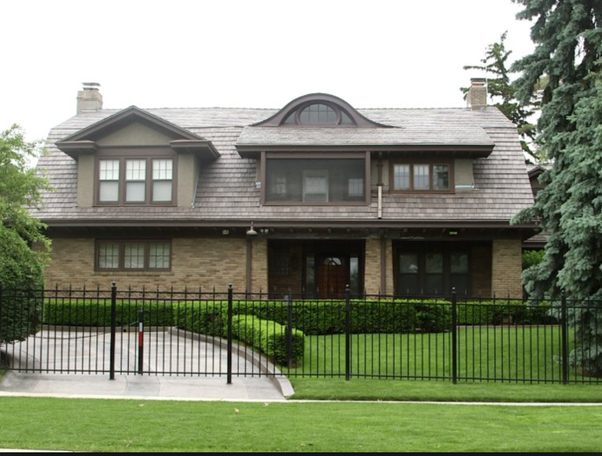
Oh! Except for one.
One guy told me he had bought 200 shares of Berkshire Hathaway in the 1970s. “Someone told me this guy was smart so I bought 200 shares.
“It doubled within a year. I felt like I was rich!
“I sold 100 of the shares and started a restaurant. We ran that restaurant for 20 years.
“The other 100 shares are worth $15 million.”
“What do you do now?”
He laughed. “Half the time I ski. And half the time I regret selling those first 100 shares.”
There’s a lot of myths about Warren Buffett.
- He’s a value investor (he isn’t).
- He’s a nice guy (he might be but the public “niceness” that we see is a persona).
- He’s a long-term investor (he isn’t always).
- He made all his money from investing (he didn’t).
- He’s a straight shooter (he’s not).
And he’s not your grandpa.
WARREN BUFFETT SECRET #1: USE THE RIGHT BUSINESS MODEL TO INVEST
First, some basic concepts that are important to understand:
WHAT IS A HEDGE FUND?
You give a hedge fund money and they invest it in whatever they want.
The hedge fund manager makes money by charging you 2% per year of the money you put in. (If you put in $1 million they take $20,000 per year.)
They also take 20% of the profits. (If they return 10% on your $1 million — a $100,000 profit — they take 20% of that, or $20,000.)
So a “2 and 20” fund would make $40,000 on a $1 million investment that returns 10% that year.
If a hedge fund has $1 billion in it then they would make $40 million just on the fees.
THAT is how hedge fund managers get rich. From fees.
WHAT IS A BANK?
It’s important to know how banks make money. Because it’s not very different from a hedge fund.
You “lend” the bank money when you open a checking account or savings account.
They then give you a small interest rate return on your savings account (let’s say it’s 1%, although even that is high right now).
They lend out the money to people who buy homes (they do other loans but this is most common). They charge (let’s say) 7%.
The difference between 7% and 1% (minus the cost of their branches and bank tellers) is what they make. (This is rough but roughly accurate.)
So if you put $100,000 in a savings account, you might make $1,000 a year. They lend the $100,000 out at 7% ($7,000 a year) and they make $6,000.
That is how a bank makes money. In one sentence: you lend them money, they invest it (by lending it to homeowners) and they take 100% of the difference each year until you take your money out.
Note: hedge funds make 20% of the profits. Banks make 100% of the profits.
WHAT IS AN INSURANCE COMPANY?
Similar to a bank and a hedge fund: You give them money, they invest it.
Small differences: You give them money, but YOU NEVER WANT THAT MONEY BACK. If you get that money back it means something bad happened to you.
This is different from a bank where the bank is simply holding your money until you take it back.
An insurance company tries to never give you your money back.
Then they invest it in (mostly) whatever they want. And they keep 100% of the profits. You don’t keep any of that.
An insurance company takes money from you every month (so you keep having insurance).
Sometimes they return money each month to people who get sick.
This is called “the cost of the float”. Sometimes they make money on that (they give out less than they take in). Sometimes they even lose money on the float. And then they only make money on their investments (minus the cost of the float).
A bad insurance company has a high cost of float (they give out more than they take in).
A good insurance company breaks even on float (they give out each month, roughly what they take in — i.e. people get sick, etc.).
A great insurance company makes money on BOTH the float (they only take money from people who they think won’t be sick and will never get their money back) and on their investments.
(Foreshadowing: Warren Buffett runs a great insurance company.)
Insurance companies use statistics to see who are good risks to take money from and they use statistics to figure out how much money you should give.
Extreme example: A 90 year old who wants life insurance will have to spend a lot more money than a healthy 20 year old woman.
These are important things to understand to understand Warren Buffett.
NOTE: Banks and insurance companies both make 100% of the profits. BUT insurance companies don’t have to give the money back when the customer wants.
To summarize:
A hedge fund takes your money for a short time, and takes 20% of the profits.
A bank takes your money for a period of time and takes 100% of the profits until you take your money back.
An insurance company takes your money FOREVER and keeps 100% of the profits.
—
Warren Buffett made his first million by running a hedge fund.
Then he switched to owning small banks. Then finally he shut down his hedge fund and put all his money into running an insurance company.
An insurance company is a hedge fund that KEEPS the investors money and KEEPS 100% of the profits.
It’s the best business model in the world.
It makes FIVE TIMES what a hedge fund would make and never has to worry about anxious investors pulling money away.
WARREN BUFFETT SECRET #2: GET A DEAL
Warren Buffett doesn’t buy stocks like you and me. He doesn’t say, “Oh! Apple dropped 9% yesterday, I better go out there and buy shares.”
This is how weak investors invest. Warren Buffett is not a weak investor.
You always want to get special treatment over everyone else in order to make money.
Else you are like the masses who, on average, do not make money. The average retail investor loses money every year no matter what the stock market does.
What do I mean by “a deal”?
If a stock is at $100, that’s where civilians are buying it.
Warren Buffett is not a civilian. He gets it cheaper, better, smarter.
Example 1: In the middle of the financial crisis, Goldman Sachs’ stock was crashing.
The stock was at $115. Warren Buffett could have just bought shares. He was a believer.
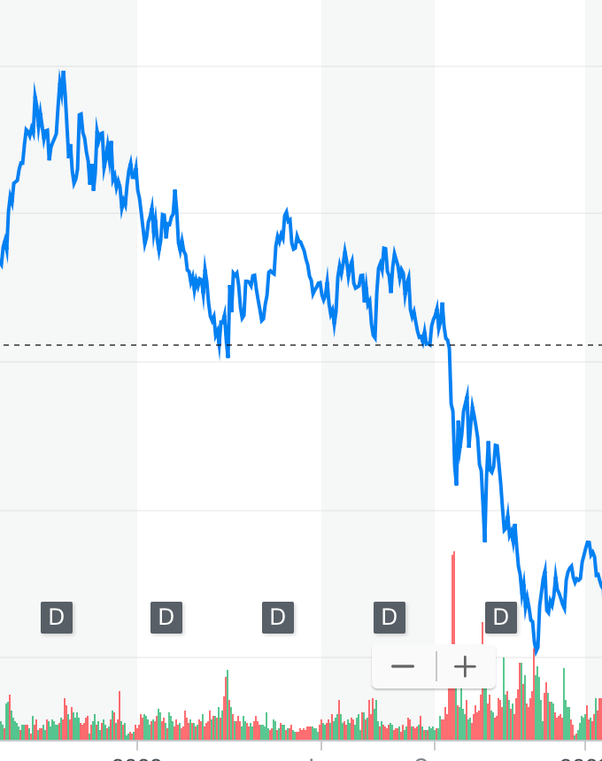
But that’s what a civilian would do.
Instead, Warren Buffett called them up and offered them a deal they couldn’t refuse when everyone was losing faith in them.
Lesson #1: Find a company that is desperate.
Here was the deal:
He invested $5 billion. That would be 50 million COMMON shares if he was a normal investor.
A) Get 50 million PREFERRED SHARES at $100. What is this? If Goldman goes bankrupt, then Warren Buffett would come BEFORE regular shareholders (the civilians) when Goldman liquidated.
He would be FIRST in line to get the proceeds of the liquidation. So the odds of him losing money were basically zero.
And note: he paid $100 a share instead of $115. So he got a discount nobody else could get.
B) He got 43 million warrants FOR FREE to buy GS stock at $115. We’ll see what this means in a second.
C) He got a 10% dividend. That means while he was still in the investment, Goldman Sachs would pay him $500 A YEAR.
So if he just sat on the investment for 10 years, even if GS stock went down to $20, he’d make all his money back. So he gives himself several ways to make money back even if things go bad.
NOTE: GS only pays a 1.93% dividend. So Buffett was getting five times the normal dividend.
Here’s what happened:
Two years later, Goldman Sachs bought back his preferred shares for $5.64 BILLION.
They paid him a premium to convince him to sell. And they gave him his dividend. So he made a quick $640 million.
When Goldman Sachs stock was at $190, Buffett (who at this point had made $640 million profit in the bank), who had paid ZERO dollars for his warrants, did something called “Exercising the Warrants”.
He FINALLY paid $115 a share for his 43 million shares (this is what a warrant is. It’s the right to LATER pay the price for the shares). And then A SECOND LATER, sold those shares for $190.
This was an extra $3.225 billion profit FOR FREE.
So altogether, because of the fact that he got a special deal, he made a $4 billion profit.
If he DID NOT have the special deal, two things would have happened:
1) He was at much greater risk of losing all his money. The “preferred” aspect plus the dividend helped reduce the risk considerably.
2) He got his money back with profit just two years later. So now he had his 43 million warrants without paying a dime for them. Anyone else would have just made the profit and that’s that.
He made an extra $3.22 BILLION dollars at ZERO COST.
That’s a deal!
He got that deal because he was “the Warren Buffett”. A persona, a super hero, a beacon of confidence that Goldman Sachs desperately needed.
You get GREAT deals when you build up a significant persona, and the other side is significantly desperate.
Else, the best strategy, as Warren Buffett says, is to “sit on your hands”.
BUT… CAN YOU GET THESE DEALS IF YOU HAVE NOTHING?
Yes, Warren Buffett has been getting deals since the day he started. He almost NEVER bought a significant amount of stock without a special deal.
Example 2: He once saw a small penny stock (when you have a smaller amount of money, you get deals on smaller stocks) that was trading for less than their liquidation value.
In other words, let’s say a stock was $10 but if you sold everything they had, you would have $12 a share in cash, then you can buy a lot of the stock, confident that in a worst case, they would liquidate and you would either make money or at least get your money back.
These are called “cigar butt stocks”. The phrase was coined by Benjamin Graham, Warren Buffett’s mentor (who wouldn’t hire Warren because he was only hiring Jewish people).
Warren saw a stock that was trading below liquidation value. So he bought a lot of the shares, and then HE CALLED THE CEO.
He gave the CEO “advice”.
“Since you have so much extra money and assets, buy back shares at a higher price than you are trading so your stock price could go higher.” (The fewer shares outstanding, the more likely the stock will go up if there are buyers.)
The CEO told him what price he would buy Warren’s shares and they did the deal. So Warren basically worked out in a private deal with the CEO an almost instant profit.
This was in the mid-’60s. Warren was a young hedge fund manager. Nobody knew who he was. But he was aggressive about always getting a deal.
Then he bought shares of the same company again.
He called the CEO. He made the same deal. But this time the CEO said, “I’ll pay you less than you want but still a decent price.”
Warren didn’t like that at all! Don’t mess with Warren Buffett!!!
He bought up more than 50% of the shares. He then fired the CEO.
The company was a little-known penny stock that made textiles. It was called “Berkshire Hathaway”.
Warren knew that insurance companies were better business models than hedge funds. He had been running his hedge fund for 10 years but he wanted a better deal than only 20% of the profits.
He wanted 100% of the profits!
So he started buying insurance companies.
He shut down his hedge fund and switched all his focus to the better business model. And he kept doing deals with small penny stock companies.
Example 3: This is not a stock deal. But it’s the same approach. Build a persona and a story and use that to make almost-free profits.
After 9/11 Warren Buffett went on CNBC and said there was an almost certain chance that a nuclear weapon will be used on US soil in the next 50 years.
Shock and Awe!
With his insurance company he then started a new product: nuclear attack insurance.
Big events like the Super Bowl would buy Nuclear Attack Insurance for millions of dollars.
If there was no nuclear attack (highly unlikely) then Buffett would collect millions for free (this is how he kept the “cost of float” profitable for him).
If there was a nuclear attack then, well, we have more to worry about than insurance.
WARREN BUFFETT SECRET #3: KEEP OTHER PEOPLE POOR
Warren Buffett has a folksy story about his secretary. “She pays more taxes than me!”
That’s because she makes a salary!
Warren Buffett is rich because he owns $80 BILLION worth of Berkshire Hathaway stock. BUT YOU DON’T PAY TAXES until you sell the stock.
His salary is something like $1 a year.
So EVERYONE pays more income taxes than Warren Buffett.
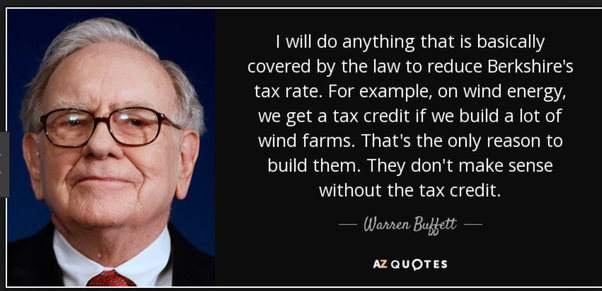
But he uses that line to get Congress to raise taxes on the middle class and upper middle class. Higher taxes means the middle class has less money to spend on products and they have to work harder for every dollar they save for retirement.
If you are rich and most people are desperate, then you find more deals.
WARREN BUFFETT SECRET #4: BUILD A PERSONA
Warren Buffett is everyone’s grandpa.
He has folksy wisdom like: “When hamburgers are cheap, buy them. Why do people buy stocks when they are more expensive?”
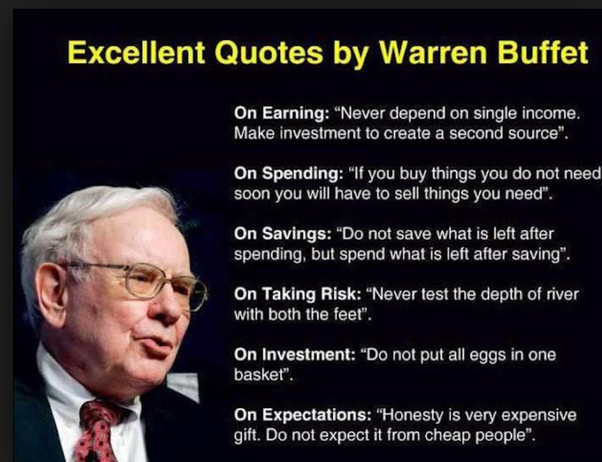
Or, “Long ago, Charlie [Munger] laid out his strongest ambition: All I want to know is where I’m going to die, so I’ll never go there. “
Nice and folksy way of saying, “life is uncertain but you can’t worry about that uncertainty.”
Using this folksy wisdom he has been an advisor to the CEOs of the biggest companies, Presidents, other billionaires, etc.
Why be an advisor? To get deals!
Part of his persona is to be relatable.
He focuses on his small house in Omaha. He never mentions he used to have an enormous mansion in California.
He focuses on the fact that his kids will inherit nothing.
He doesn’t mention he gave them each a $3 BILLION charitable foundation.
With a charitable foundation like that, they can take a salary of tens of millions per year.
And because these were set up as charities, when Buffett dies, none of his kids will have to pay an inheritance tax.
Nor will Buffett pay the enormous estate tax that every other rich family has to pay because he has pledged to donate the remainder of his money to Bill Gates charity.
I am not saying this is not a generous thing to do. It is very generous. But it does mean I will not listen to what Buffett says about taxes since he has done a very good job at avoiding them.
WARREN BUFFETT SECRET #5: TIME IN A BOTTLE
Time management.
Warren works all day. As he says, “I skip to work” .
But he delegates the management of all the businesses he owns (from Fruit of the Loom to See’s Candies to the huge insurance companies).
And he only gets involved in investments when he gets deals so good that they are easy for him to say “Yes” to. Which is rare but he is fine waiting and being patient.
And then rest of the day he reads and he plays bridge.
He has a great life. I wouldn’t trade mine for his but I admire how he set up his life.
Reading is the best way to make sure you have more knowledge than the people you are doing deals with.
And bridge is his favorite game. It uses the brain, it uses his passion for statistics, and it’s fun (his bridge partner is usually Bill Gates).
He loves his day. He loves his life.
Invest your energy and time wisely because the dividends compound and produce a great life.
And THAT is how Warren Buffett gets rich.
SOURCES:
Note: Some of this is based on the book I wrote in 2005: “Trade Like Warren Buffett”.
Some of this is based on the many articles I’ve written about Buffett since then.
Some of this is based on research I did as an advisor to the TV show “Billions”.
Some of this is based on the many discussions I’ve had with billionaires for my upcoming book, “Think Like a Billionaire”.
And some of this is based on my years as a hedge fund manager.
Other sources: “The Essays of Warren Buffett” by Lawrence Cunningham. “The Snowball” by Alice Schroeder. “Supermoney” by Adam Smith. “Buffett” by Roger Lowenstein.

